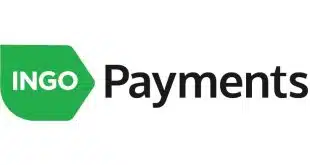The battle over online gambling continued earlier this week during a hearing held by the U.S. House Ways and Means Committee on legislation to tax licensed Internet gambling in the U.S. The bill—known as the Internet Gambling Regulation and Tax Enforcement Act—was reintroduced in March by Rep. Jim McDermott, D-Wash.
The bill contains new provisions that weren’t in the original version of introduced in October, including a revenue incentive for states that could generate up to an estimated $30 billion for states over a 10-year period.
McDermott’s bill is intended as a companion to legislation introduced in the House by Rep. Barney Frank, D-Mass., designed to replace the controversial Unlawful Internet Gambling Enforcement Act of 2006 (UIGEA). The UIGEA bans gaming sites from accepting money transfers of any kind for bets deemed to be unlawful gambling. The UIGEA directs the U.S. Treasury Department and the Federal Reserve Board to create regulations that would require banks and processors to block payments to unlawful gaming sites.
Banks, processors, the Fed, and Treasury Department have said UIGEA regulations are ambiguous and unworkable and will hurt the financial industry while having little impact on illegal online gambling.
Frank’s bill, H.R. 2267, the Internet Gambling Regulation, Consumer Protection & Enforcement Act of 2009, is pending in the subcommittee on Crime, Terrorism and Homeland Security. The bill, introduced in May (Digital Transaction News, May 7), would establish a federal regulatory and enforcement framework under which Internet gambling operators could obtain licenses to accept bets and wagers from U.S. residents.
In testimony before the Ways and Means Committee on Wednesday, McDermott said his bill would generate about $42 billion for the federal government over 10 years, according to the Joint Committee on Taxation.
“Under my bill, most of the $42 billion could come from individuals who win money gambling online when they declare their winnings on their income taxes,” he said. “Licensed gambling operators would be required to send to the (Internal Revenue Service) the gamblers’ annual 1099-IG tax forms, listing their customers’ net winnings or losses.”
About 21% of the revenues would be generated by modifying existing tax law, which already imposes a one-quarter of 1% tax on wagers, to include all federally licensed online bets, without exemptions, McDermott says. Under the bill, the tax on online gambling would be 2%, payable by the operator. That tax would generate about 16% of revenues under the bill.
“It would level the playing field between online operators and brick-and-mortar gambling operations, which are more expensive to run,” he said.
The bill also would generate federal revenues from corporate income taxes paid by the licensed operators, representing about 6% of the revenues, McDermott said.
In addition, the bill would allow states and tribal authorities to accept a 6% deposit tax, given to them automatically each month by the operators, in lieu of imposing taxes of their own. The deposit tax and existing state income taxes together would generate about $30 billion over ten years for states and tribes, he said.
“Apart from cleaning up online gambling and generating new tax revenue, regulating Internet gambling would create jobs in the U.S. by bringing it onshore,” creating up to 30,000 additional jobs within five years of enactment, McDermott said.
But Rep. Bob Goodlatte, R-Va., an opponent of legalizing online gambling, question whether taxing online gambling would generate the estimated revenues cited by McDermott.
“The revenue estimate by the Joint Committee on Taxation that the bill will raise $42 billion is only possible if every state and tribe participates in the licensing scheme,” Goodlatte said. “JCT explicitly states that when calculating the oft-cited $42 billion estimate, it assumed that no state or tribal government will be permitted to limit federally licensed Internet gambling operators from providing online gambling services in their jurisdictions.”
Goodlatte also noted that 45 state attorneys generals and the professional sports leagues have sent letters opposing Frank’s legislation to legalize Internet gambling.







